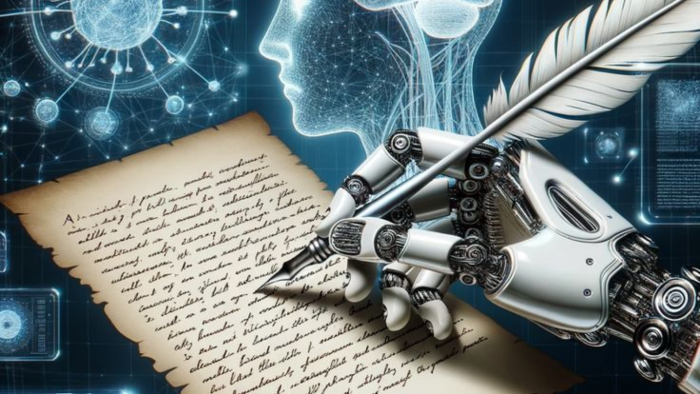1. Introduction to AI in Thesis Writing
Writing a thesis is one of the most demanding academic tasks. It requires deep research, critical analysis, proper structuring, and accurate referencing. Traditionally, students spend months collecting data, reviewing literature, and editing drafts. However, Artificial Intelligence (AI) tools have now made thesis writing more manageable. These tools do not replace human effort but serve as powerful assistants that help students write faster, organize better, and improve the quality of their work. From grammar correction to research analysis, AI has become a valuable companion for academic writing.
2. Research and Literature Review Support
One of the most time-consuming parts of a thesis is the literature review. AI-powered research tools can scan thousands of journals and academic articles in seconds. They extract key ideas, highlight relevant sections, and even recommend related research. Instead of reading hundreds of pages manually, students can use these tools to get summaries and insights, making the review process faster and more efficient.
3. AI Writing Assistants
Clarity, coherence, and grammar are essential for thesis writing. AI writing assistants help students polish their drafts by correcting grammar errors, suggesting better sentence structures, and improving readability. These tools also help non-native English speakers enhance the fluency of their writing, ensuring that the thesis meets academic standards.
4. Paraphrasing and Summarization Tools
Academic writing often requires paraphrasing information from multiple sources without losing meaning. AI paraphrasing tools rephrase text while maintaining originality, helping students avoid plagiarism. Summarization tools, on the other hand, condense lengthy articles or chapters into key points, saving time and effort during thesis preparation.
5. Citation and Reference Management
Citations are crucial in thesis writing. AI-powered citation generators can create accurate references in APA, MLA, Chicago, or other academic styles. Instead of manually formatting references, students can generate them instantly, reducing errors. These tools also allow building a reference library, making it easier to organize sources for the final document.
6. Plagiarism Detection Tools
Academic honesty is non-negotiable in thesis writing. AI-based plagiarism checkers ensure that the content is original by comparing it with millions of online sources, books, and journals. They highlight duplicate sections and suggest corrections, helping students maintain the credibility of their research.
7. Data Analysis Tools
For thesis projects that involve surveys, experiments, or case studies, AI data analysis tools are extremely valuable. These platforms can process large datasets, run statistical models, and visualize results. Instead of manual calculations, students can use AI to analyze data quickly and accurately, which improves the reliability of research findings.
8. Thesis Structure and Organization
AI tools also assist in structuring the thesis. Some platforms provide templates and section guides, helping students organize their introduction, methodology, results, and conclusion in a logical flow. This ensures that the thesis remains well-structured and easy to follow.
9. AI for Editing and Proofreading
Editing is as important as writing. AI editing tools scan the thesis for readability, tone, and academic style. They provide suggestions to make the writing more formal, concise, and professional. This final layer of editing ensures that the thesis meets academic expectations.
10. Future of AI in Academic Writing
The use of AI in thesis writing is expected to expand in the coming years. Future AI tools may assist in generating research questions, identifying gaps in literature, and even suggesting innovative methodologies. While ethical use is important, AI will remain a supportive force in helping students complete academic projects more efficiently.
FAQs
Q1: Can AI tools write a complete thesis?
No. AI tools are designed to assist with grammar, research, citations, and analysis, but the critical thinking, originality, and arguments must come from the student.
Q2: Are AI plagiarism checkers reliable?
Yes, most AI-powered plagiarism tools are highly reliable. They scan vast databases to ensure originality, though students should still review results carefully.
Q3: Do universities allow the use of AI tools in thesis writing?
Most universities accept the use of AI tools for support tasks such as proofreading, referencing, and plagiarism checking. However, submitting AI-generated content without effort may be considered academic misconduct.






